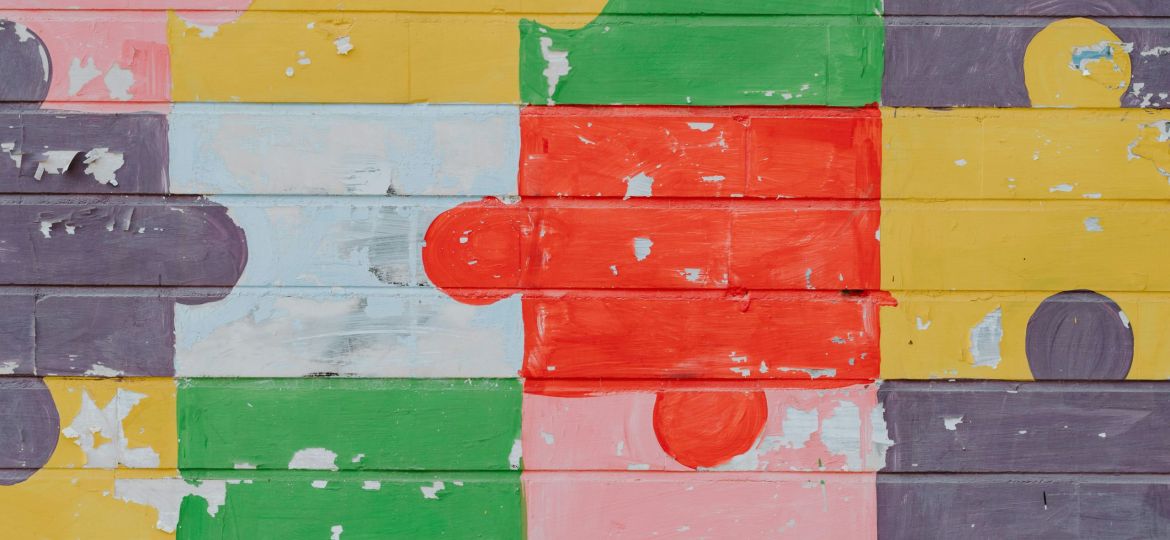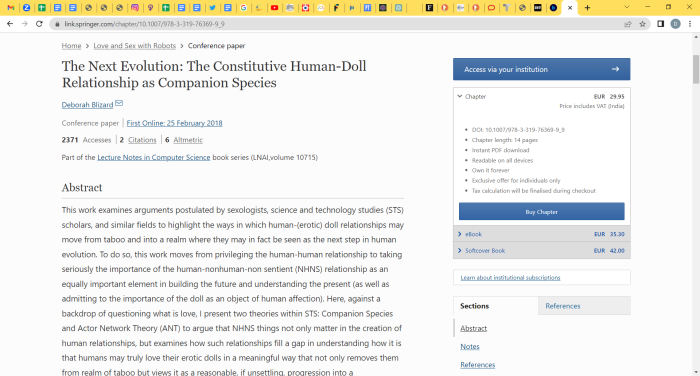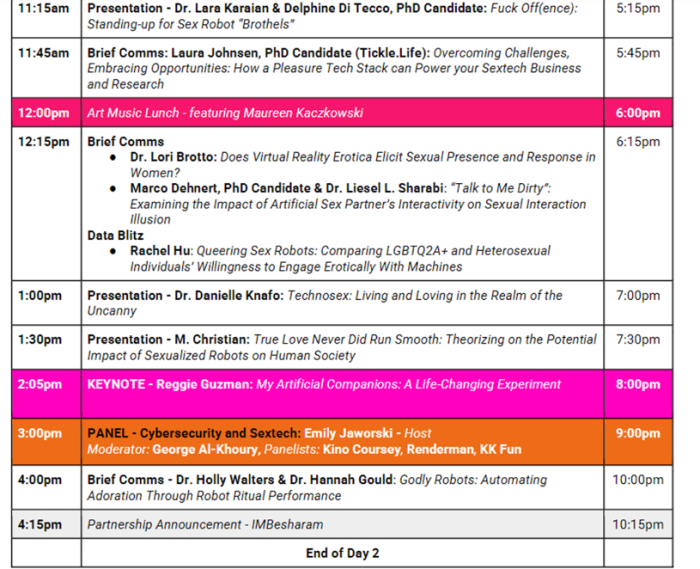
Why do we spend so much time and energy in controlling sex?
Being able to have sex with another being in order to reproduce was a huge milestone for the evolution of life on this planet, compared to say amoeba that reproduce by just dividing into two. Of course, humans have sex not just for procreation but also for pleasure and to assert power!
But we need to free ourselves from the burden of needing to control sex and sexuality all the time – forever running, just to stay in place! What is so scary about sex and sexuality?
In the landscape of SRHR, one thing which I continue to see is this emphasis on women’s role as mothers. I’m seeing increasingly pro-natalist policies, or this kind of approach that women’s duty is to be child bearers, whether it is to produce children for the labour force and for the markets, whether it is to produce children for the army and therefore nationalist imperatives, or whether it is things like the sex ratio. We have too few girls so it’s kind of beholden on you to have more girls, to ‘improve’ the sex ratio. That particular narrative seems to have died down, but the other nationalist imperative still seems to be in force.
Simultaneously we are also seeing a massive resurgence of anti-choice propaganda and laws, in the US particularly, where thanks to Trump, and the politics in their recent past, people’s existing conservative tendencies have been given a voice and legitimacy. A lot of US states enacting these retrogressive policies, like Alabama, Mississippi, are all in the deep South. These are states which, during the civil war in the US, were the slave plantation states, so somewhere that sense of entitlement, that white male supremacy, and women being seen as secondary, that’s all always been there.
But it is not just the US. Male supremacy and patriarchy are on display all around us. Remember the recent horrifying judgement of the Madhya Pradesh High Court that ruled that “unnatural” sex with a wife does not constitute rape and her consent is immaterial in such cases? What about the decriminalisation of domestic violence by the Russian parliament in 2017? Members of the lower house of parliament voted 380-3 in favour. The parliament speaker said the measure would strengthen the conservative social values promoted by the government. “It’s important to us that nobody interferes with families, that society appreciates these issues, and that the state creates conditions for building strong families,” he said. On average, 22 women were killed every day in Russia in 2018 before the pandemic.
If you consider the emerging 4B movement in South Korea – which includes Bihon (the refusal of heterosexual marriage), Bichulsan (the refusal of childbirth), Biyeonae (saying no to dating), and Bisekseu (the rejection of heterosexual sexual relationships) – this is of deep social significance. These are some of the signs that some serious, transformative, re-calibration is needed, a deeper and more evolved understanding of where we are headed and how we can redirect our approach to Sex, Sexuality and Self.
If you’ve got a body, in which you’re going to negotiate this life, you have to know how it works. You have to know what you want and what you don’t want. You have to know how to keep it safe. Considering these things, if we say that we want to equip children to have complete power over their own lives and lived realities, then comprehensive sexuality education, CSE, becomes absolutely a given. We have to do this – reposition CSE, in this way, though probably what I’m saying is a very utopian kind of culture shift, to normalise the conversation. This is something I often feel. I feel we spend so much of our time, energy, passion, and thinking in creating, laws, protocols, programs, controls, everything around the fact that we want people to have sex in only a certain prescribed way. Right? Why? Let’s ask, why? Who benefits from this?
It is so important for us, those of us who work in this field, to keep talking about these themes, to go deeper and think higher, because if we don’t, who will?
Why is any violence considered ‘domestic’?
At the height of the Covid-19 pandemic, the term ‘shadow pandemic’ emerged because of the fact that women, young children, as well as sexual and gender minorities, were trapped inside the house with their abusers!
I think this would also include people with many intersecting and at-risk identities, beyond binaries, such as persons living with disabilities. Anyone who is not perceived as being ‘acceptable’ and ‘productive’ in a neo-liberal, capitalist society is therefore seen as consuming or occupying spaces which other people resent them for. A resentment that is either because they require the emotional and physical labour that goes into caring for them, or because they are, financially, a burden. Or they are in some ways, forcing people to acknowledge that maybe this heteronormative and capitalist framework is not a framework as much as it is a kind of a cage.
Anyone who experiences these identities is queering life, and is disturbing to people who currently enjoy the power and the privilege. Therefore, often this disturbance expresses itself as violence. Physical, mental, emotional, financial and sexual violence.
It happens behind closed doors so the State and its machinery, that sustains and even amplifies the cis-heteronormative, patriarchal, uber capitalist framework, and is otherwise very much interfering with our personal choices, suddenly decides that this particular kind of violence is not a public health issue but very personal and ‘domestic’ and looks the other way.
I am not sure if the incidence of such violence has gone back to pre-pandemic levels, or we just don’t hear about it much anymore. It has become the new normal. We are not paying so much attention to it, because now we are wrapped up in so many other things that are coming our way. Elections. Climate change. Financial scams. War.
In the face of the omnipresent systemic violence, the ‘lesser’ domesticated violence is probably not important enough?
How can we engage those who have no bandwidth to ask questions like these?
This is something I observed many years ago, when I first started this work. I remember talking to someone from one of our neighbouring countries, and I asked, “What is the feminist movement like over there?” They said, “We’re just struggling with basic human rights, like just the right to live. Just the right to survive. Just the right to not be stoned or beheaded or murdered by our own families for some kind of honour killing.”
So it feels like this is what we are also doing. Struggling with so many other issues coming at us, that our issues have once again become invisible.
It is important for us to see how people who are marginalised are the ones who need to lead all these conversations. The very fact that there is a mainstream from which they are marginalised tells us that there is a severe power imbalance. You can be different, but not be marginalised. The very fact that being different makes you vulnerable and marginalised and on the peripheries of these conversations or these power dynamics, is in itself a glaring neon sign that we as a society, civil society, people who think about these issues, talk about them, we need to proactively do something to shift that balance.
Why do we expect communities – who are battling their own issues – to provide a supportive environment, in the absence of any input from systems?
I’ll give you an example. When I first came down from UK with my brand new degree from the Royal College of ObGyn, I was very excited to bring in the positive changes I had encountered and learnt about. One of things I was keen on was to set up domestic violence checklists in the hospital I worked in. They were very open, they said this is very interesting.
In the UK there is a baseline domestic violence checklist for intimate partner violence. Whoever comes in, they give them forms to fill out, and one of them is this, which asks questions like have you faced verbal abuse, etc. – and then it’s up to the doctor’s discretion whether to build on that further. And of course, depending on the client, whether they want to take it further. But such a checklist is available. Nobody needs to make an extra effort to ask you.
But when I was trying to do it here, the administrator asked me a very basic question, “What will you do once they say that they have experienced it?” That’s when I realised the truth of this, and this was 25 years ago.
The reality was that once they have expressed the vulnerability and courage to say, yes, I am facing domestic abuse or violence, I actually had nothing to offer them afterwards. At that time places like Dilaasa had not yet been set up. Of course even if such a facility exists, not everyone necessarily wants to go there, and there aren’t too many other options.
How do we address this as a society so that everyone can live a life free from violence and fear?
Why is India’s divorce rate 1%?
Last year, a Supreme Court judge had said that most divorces happen in love marriages. A journalist wanting my opinion about this, asked me, “Why are more divorces happening in love marriages?” I answered, “You’re asking the wrong question. The question I want to ask is, why aren’t more divorces happening in arranged marriages?”
India has the lowest divorce rate in the world at 1%. It is not as a result of our ‘sanskar’ as some people like to gloat, but more because women are stuck! Our divorce law is still so archaic (it speaks of destitute wife, chaste wife) and not really giving equality or justice to divorced women that women are more afraid of leaving an abusive and unhappy marriage than staying in it.
Isn’t that contributing to the oppression?
Most of the women I speak to as a divorce coach, have only two real fears, one is the fear of what will happen to their children in terms of custody, and the second fear is whether they are going to have the financial ability to look after these children. Even if they are working outside the home and earning, most often it is the husband who’s been controlling the money the whole time. The children borne by a woman have the husband’s name and his ‘legitimacy’ so it’s no surprise that in our patriarchal post-colonial and capitalist society, the husbands see the money they earn as also their own and not as a shared asset with the wife. Husbands simply do not see it as the family money.
Of course once same-sex or any-gender marriages become legal, we will have to be ready for a new divorce law also so that both partners have equal rights.
When I first started working as a divorce coach I searched on various sites for most common questions asked about divorce. I was stunned to find that most questions were from men and most of them were asking for tips on how to avoid giving alimony, how to start hiding their money before declaring the divorce decision!
In India, the vast majority of marriages are still arranged marriages, very much within the religion, caste, sub-caste kind of structure. It almost feels like the question still is – are you willing to be an outcaste for love?
The data shows this being perpetuated even in the new generation, and as Dr. Ambedkar also expressed often, marriage is the gateway to the caste system.
These highly calculated and arranged marriages with families involved on both sides, primarily with the purpose of perpetuating their lineage through ‘pure’ caste offspring, probably makes it more difficult for women to leave unhappy marriages, mainly because their happiness or fulfilment was never the metric of its success in the first place!
How do we shift the way we marry and divorce within this cis-heteronormative patriarchal identity controlled system so that women can speak up and step out of these relationships, instead of continuing to tolerate horrific abuse, violence and deep unhappiness?
Why do we remain stuck in our patterns?
When I was going through my own divorce process I was really struggling to figure out what I was supposed to do next.
People gave me random advice, based on either their personal experience, or second hand, third hand experience. Like my friends said ‘that lawyer’ told her something, or just ‘don’t worry time will heal all wounds’, and ‘just be brave’, that kind of stuff, which isn’t really helpful when you’re actually in the thick of it. Struggling to figure out, okay, be brave is fine – but what is the next decision I need to take?
That’s when I came across a phenomenal programme called Conscious Uncoupling which changed my life.
The core principle is that as an adult, you are the source of your own experience.
Most often due to some experience in childhood we create a story which then becomes our frame of reference and we live our lives based on that template.
For example, let’s say, a five-year-old child is to be picked up from school and the parent is late. The child makes up the story that – oh my god, I can be abandoned at any minute – and then they spend the rest of their life trying to make sure that they are never abandoned. They become somebody who is a people pleaser, conflict averse, someone who will not be in touch with their own desires and feelings because their focus of attention is always on the outside. How do I keep that person happy to make sure that they never abandon me? Because in the pit of my stomach, as a five year old, I know what that felt like and I never want to feel that way again.
Most of our unconscious patterns are from a fear-based or scarcity-based mindset, and this happens to most people in varying degrees. Some people have healthy coping mechanisms and manage to grow beyond that old story but many of us remain trapped in those unconscious patterns of thought and behaviour.
What the programme helps you do is not just uncouple from an intimate partner or a spouse, it’s actually uncoupling from your own past and your own patterns. That is what makes it incredibly powerful.
It can often feel like there’s a gravitational pull of the past self which holds you down, or holds you back, and once you are freed from that, you are then capable of creating a forward thinking, futuristic path for the rest of your life.
As a certified Conscious Uncoupling coach, the reason I’m focusing on women going through divorce right now, is because through my own experience I realised what a huge unmet need there is here. You have lawyers to talk about the legal issues, you can get a financial advisor, but there is literally no one who takes you through the emotional landscape and helps you through it, to be able to rewrite the script and create your Happily EVEN After – you know, as a reference to fairy tales where it is usually the king marries the queen and they live Happily Ever After.
There is a huge amount of guilt, shame, self-hatred and negative self-talk I hear from the clients I work with, because this has been part of the conditioning. Women are taught to just unconditionally sacrifice, to be superwomen, to always have the locus of their emotional power with someone else outside of them, whoever it may be. For their parents, they should be a good daughter, for the teacher, they should be good girls in school, for husband, in-laws and society, a good wife, a good mother, it’s always something outside of them. This is what I find frustrating and enraging.
As we know, patriarchy is also toxic to many men, and while they have far more privileges, they are also buried under the weight of a different set of expectations.
How can we evolve as a society if we have got most of our population trapped in these meaningless ‘should’ cages, without having the opportunity to fulfil their own dreams and their own highest capacities?
Why are we really here?
It sounds funny, but increasingly people are posting messages like I want AI to do my laundry and cleaning so that I can write poetry and create art, not the other way around!
At the Abortion & Reproductive Justice Conference earlier this year I spoke about the way AI and robotics is changing everything and as a movement working on sexual and reproductive health and rights, we are way behind the curve! We are still grappling with issues of sexuality education i.e. teaching young humans about their own bodies and how to keep themselves safe and healthy.
Meanwhile, Love & Sex with Robots has already held eight Annual Conferences with fascinating topics being discussed:


The Ninth Annual Conference to be held later this year is asking for submissions on topics like these: Robot Emotions, Humanoid Robots, Clone Robots, Entertainment Robots, Teledildonics, Intelligent Electronic Sex Hardware, Robotics and Electronic Sex Startups, Gender/sex Approaches, Feminist and Intersectional Approaches, Roboethics, Philosophical Approaches
When will we ever catch up, let alone be able to influence or be engaged in such critically important issues? Maybe I will ask ChatGPT or Claude for answers.
Suchitra Dalvie thanks Shikha Aleya for her patience and enthusiasm that contributed to shaping collected conversations into this article.
Cover Image: Photo by Ashkan Forouzani on Unsplash